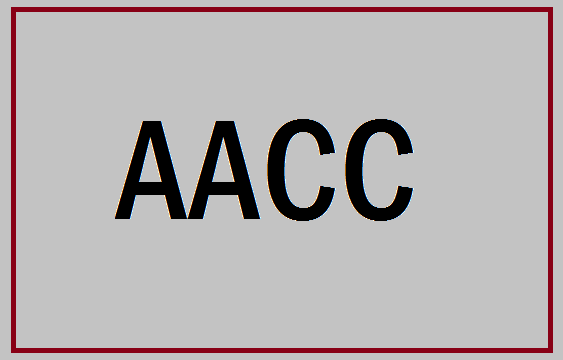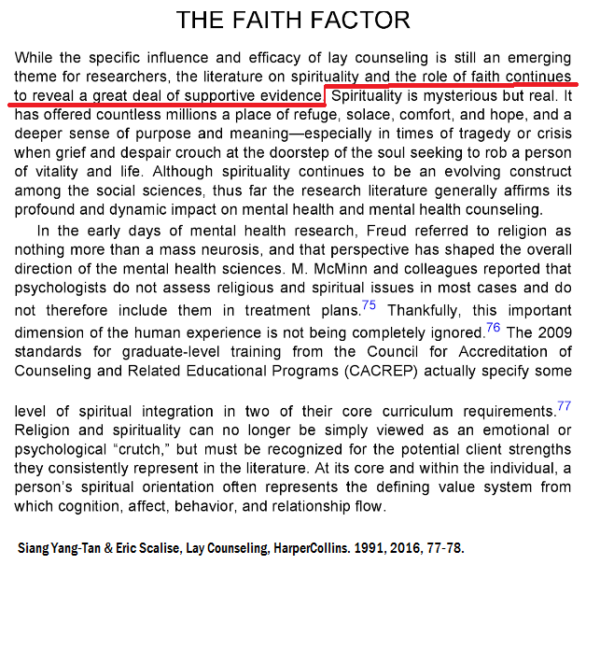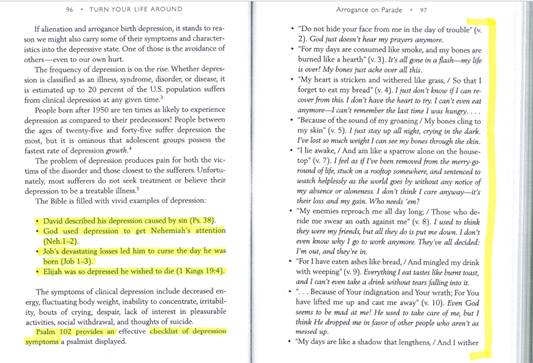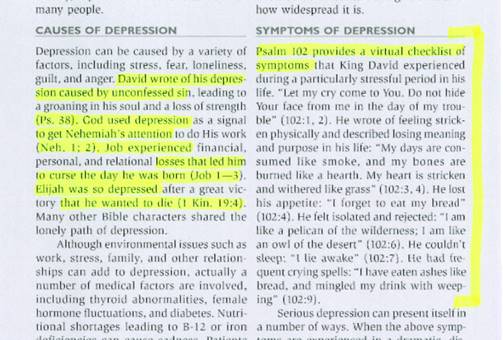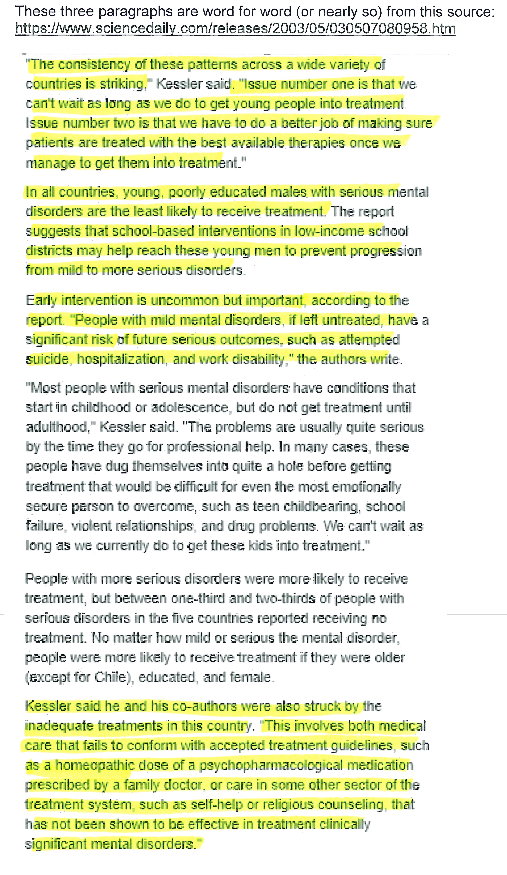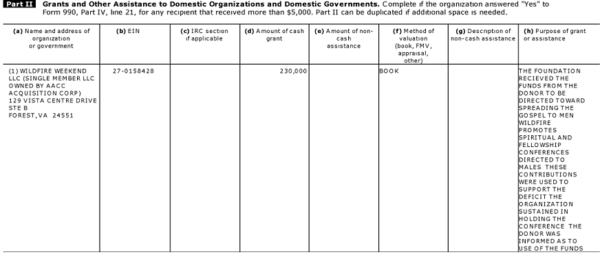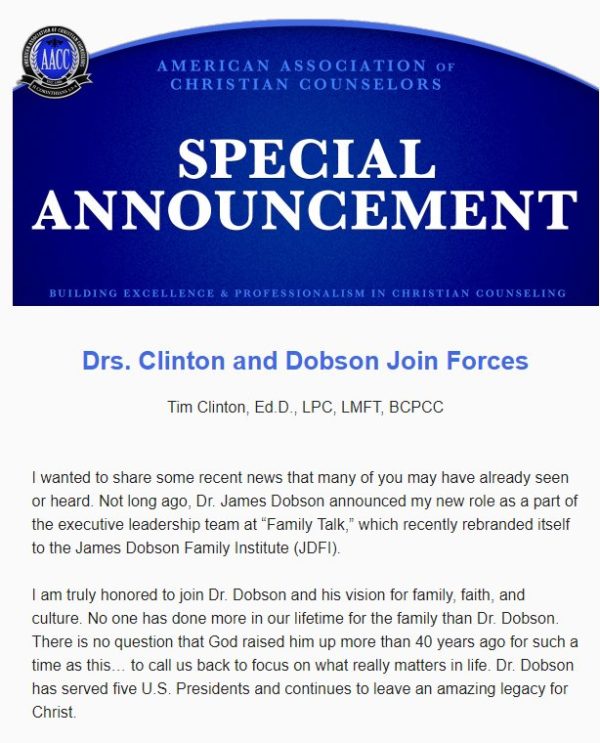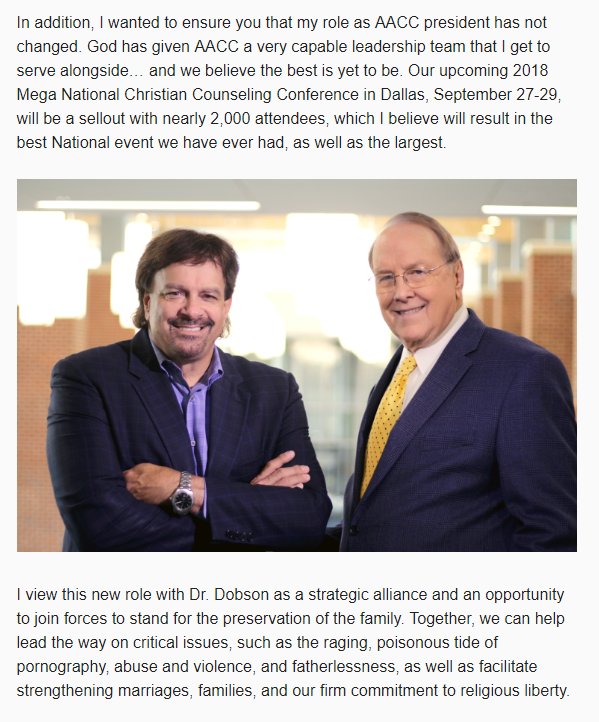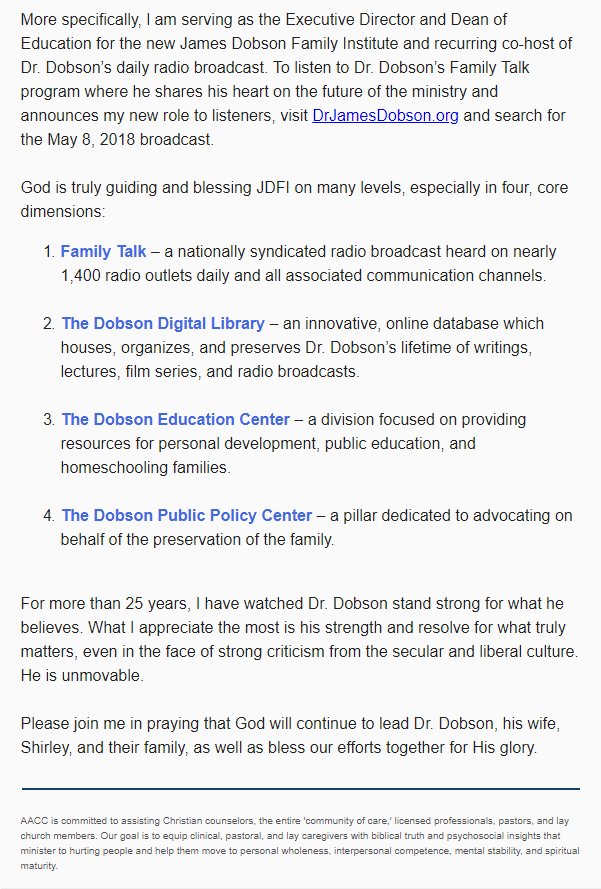By most measures, the American Association of Christian Counselors appears to be successful. The AACC conferences feature big name Christian celebrities and, according to AACC owner Tim Clinton, often sell out. Although there is no way to verify it, promotional material boasts that the business has “nearly 50,000 members” (see Tim Clinton’s president letter on the About tab).
Mental health professionals and students familiar with other professional organizations might wonder why Tim Clinton has been the president of AACC since he took over in 1998. There are no past presidents, or a president elect as with other associations. This is because the AACC is Tim Clinton’s for profit business. Members don’t take part in governance of the organization, there is no governing board or council, and no member involvement in setting policy.
Disadvantages of the For Profit Model
Over the years, I have studied and been involved in professional associations. In the late 1990s, I was on the board of the American Mental Health Counselors Association as president elect, president and past president of the association. I have served on committees of the American Counseling Association, an umbrella group for several counseling associations. For awhile, I was on AACC’s do-nothing advisory board. From these observations, I can say that there are some advantages to member driven groups (ACA/AMHCA) over a private business model (AACC).
Transparency
An obvious advantage is that typical nonprofit associations* are more transparent than for profit private businesses. Members pay dues and can get access to financial records showing how their dues are spent. Tax exempt organizations file 990 financial disclosure forms with the IRS which are then made available to the public. Not so with the AACC. The AACC did spin off a nonprofit foundation which does report operations on IRS 990 forms and I have started a series analyzing that Foundation. However, the AACC Foundation doesn’t collect membership fees. Members can guess but they don’t know how their dues are spent by AACC. They don’t know how much are spent on salaries, or member services or any important measure of organizational efficiency.
Accountability
Transparency serves accountability to members. In a member driven organization, members can raise concerns about how staff and officers spend money and make policy. They can have input into the budgeting process. If members don’t like what is happening they can voice their discontent directly to those who make the policies via processes spelled out in the by-laws.
In member driven organizations, officers are elected to represent members. These officers rotate and allow wide representation of interests. Clinton may create a board as a part of the illusion that the AACC is a professional organization, but it has no power. The members of the board of reference could vote to do something but if Clinton doesn’t agree, it doesn’t matter. In a real professional association, the members matter. Their voice carries weight via a vote for state officers, regional officers and national officers. In this way, the organization’s leaders are accountable to the members.
Another aspect of accountability is a functioning ethics process. AACC has a code of ethics. However, I know an individual who wanted to file a complaint but was routed to the public relations director instead of the ethics committee. In such cases, the sensitive matter of an ethics complaint should go to the ethics committee charged with handling such cases, not to a gate keeper. The members of the ethics committee were never identified.
Pushing Products or Providing Services?
AACC constantly pushes dubious products and certifications. Through AACC, you can become certified as a Professional Life Coach through the Board of Christian Life Coaching. Dina Jones is the executive director; she’s also the director of professional relations for AACC. There are four certifications one can achieve, each with a $199 application fee and a biennial $149 renewal fee. Of course, AACC has something called Light University which offers courses in life coaching which will help meet the requirements.
There are more. You can also be certified by the Board of Christian Professional and Pastoral Counselors, and the Board of Christian Crisis and Trauma Response. Just like the life coaching certification program, these boards all have levels of certification with high price tags and renewal fees.
The problem is that there is no assurance that these credentials mean anything to anybody. A license with a scope of practice for independent work in a state is what is needed to legally operate as a mental health provider. Health insurers don’t require any of these certifications. These certifications didn’t arise due to a need among professionals or clients; they came about because they generate income for AACC.
Nonprofit associations spend time working on member needs. Members are involved in meaningful ways developing policies and practices that respond to actual needs among the members. Different incentives operate in the for profit sector. Instead of responding to what members want, AACC has to sell members on the idea that these certificates are what they want.
What We Need
Christian mental health professionals have professional associations to join (e.g., APA, AMHCA, NASW, AAMFT). However, many also want to come together with a group of professionals of like belief for fellowship and reflection on our vocation. I am leaning toward Christian Association for Psychological Studies as a place for that.
For many students in graduate programs, it will take courage to ask hard questions about AACC. Some grad programs are affiliated with the organization. Some professors pad their resume with presentations at AACC conferences and are reluctant to speak out. Some leaders in AACC don’t like the situation but are likewise afraid to give up the benefits of being in a favored position.
The fear of speaking out that I continue to hear from psychology professors and students around the country highlights some of my concerns about AACC. Dissent in professional groups should not result in shunning. It clearly does in AACC world. I am rooting for the graduate students to do things differently.
*I realize there are differences between nonprofit and not-for-profit organizations but I am referring to all groups which are not in business to make a profit for the owner or shareholders.
